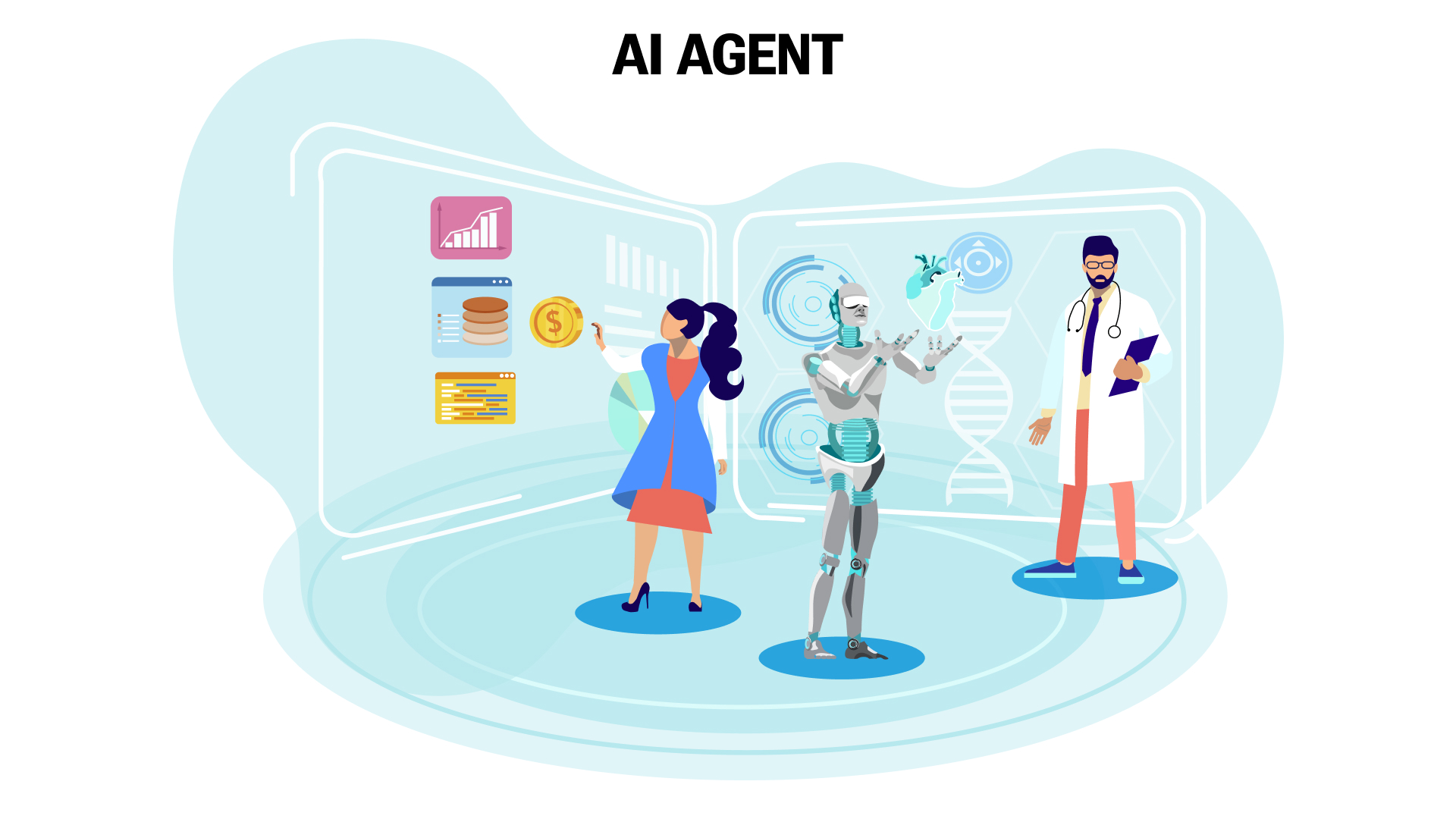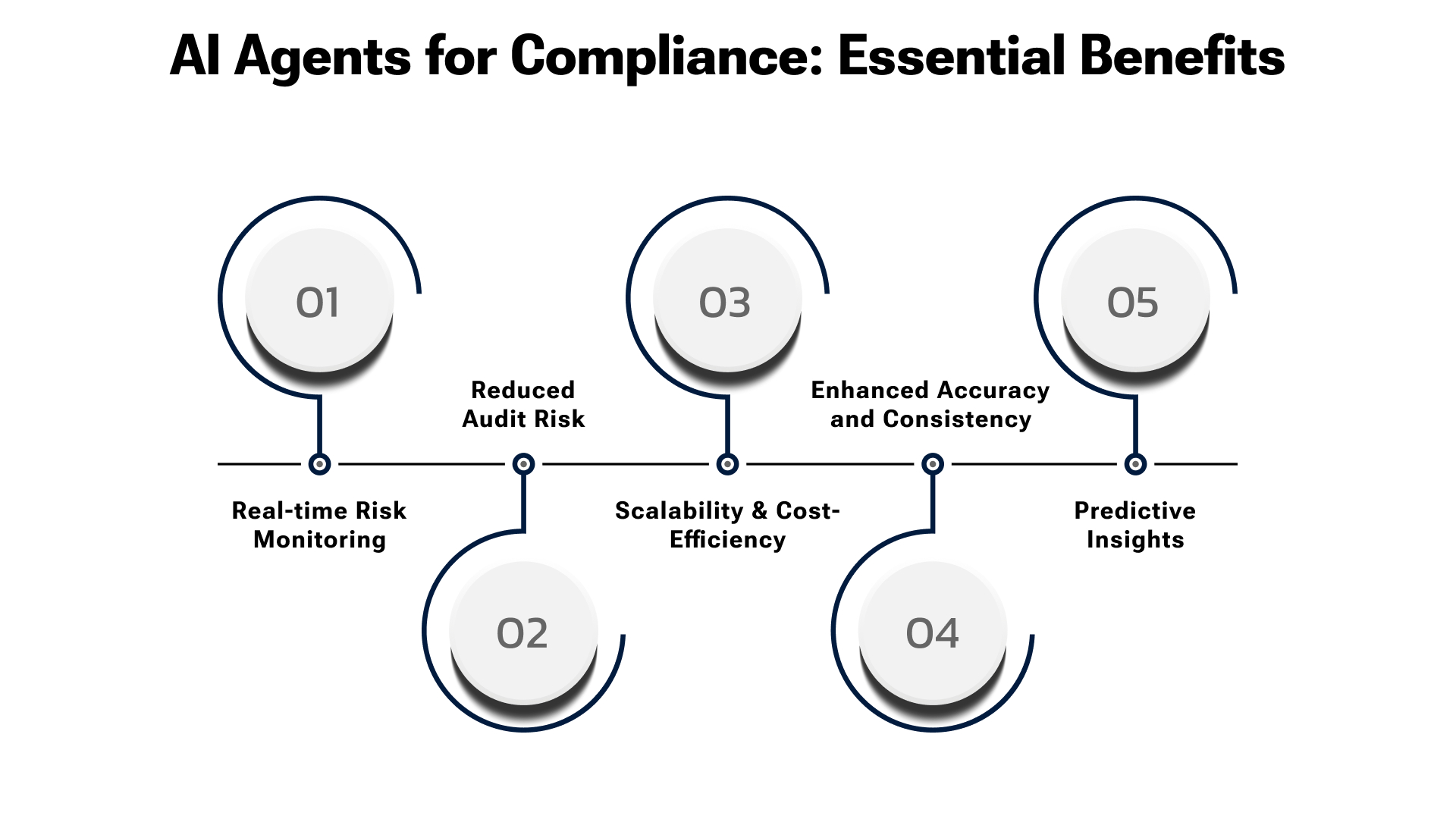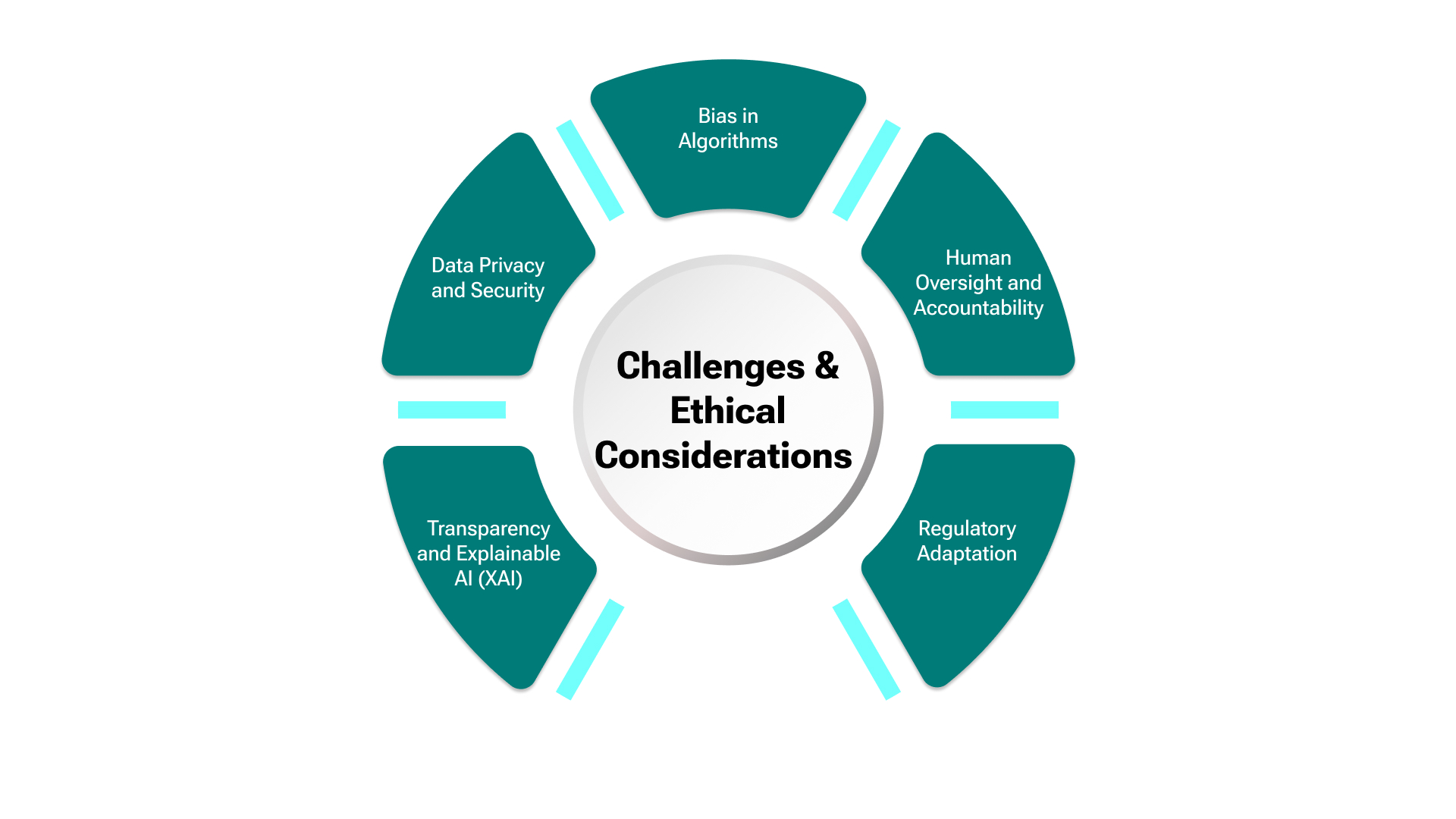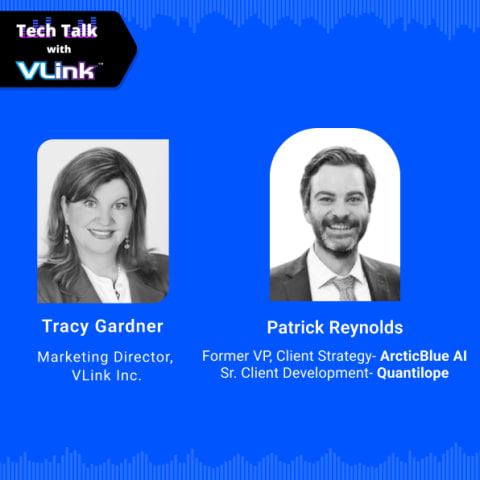From HIPAA in healthcare to a labyrinth of state and federal mandates in insurance, the sheer volume and granularity of regulations create an administrative nightmare. These are persistent healthcare compliance issues that plague the sector.
Traditional, manual compliance processes are often reactive, prone to human error, and struggle to keep pace with the dynamic regulatory changes. This usually results in missed deadlines, overlooked policy updates, and ultimately, costly fines and reputational damage. The stakes couldn't be higher, as they impact patient safety, data integrity, and the financial stability of organizations. This escalating challenge highlights an urgent need for more robust, proactive, and efficient solutions.
This is precisely where the transformative power of AI in healthcare compliance steps in, offering a beacon of hope.
By embracing advanced technologies like AI, businesses can move beyond mere adherence to regulations and towards a strategic approach that fosters risk management and enables predictive compliance, transforming a burden into a competitive advantage. This move towards healthcare compliance automation is no longer optional; it's essential for survival and growth.
What Are AI Agents and How Do They Work?
At the heart of this compliance revolution are sophisticated AI agents for regulatory compliance. But what exactly are these digital entities, and how do they function to simplify such complex tasks? Simply put, AI agents are sophisticated software programs designed to perceive their environment, make autonomous decisions, and take actions to achieve specific goals.
 They are powered by a combination of advanced technologies, primarily Natural Language Processing (NLP) and Machine Learning (ML). The role of AI agents in healthcare and insurance is rapidly expanding.
They are powered by a combination of advanced technologies, primarily Natural Language Processing (NLP) and Machine Learning (ML). The role of AI agents in healthcare and insurance is rapidly expanding.
- Natural Language Processing (NLP): This enables AI agents to comprehend, interpret, and produce human language. In a compliance context, this means they can read and analyze vast amounts of regulatory documents, legal texts, internal policies, patient records, and claims data, extracting key information and identifying relationships that would be impossible for humans to process manually at scale.
- Machine Learning (ML): ML algorithms enable AI agents to learn from data without requiring explicit programming. They can identify patterns, anomalies, and potential risks, improving their performance over time. For instance, an AI agent might learn to detect subtle indicators of fraud in insurance claims or identify deviations from established HIPAA protocols in healthcare records.
Together, NLP and ML empower AI compliance tools to perform a range of critical functions: from automating data extraction and classification to conducting real-time risk assessments and flagging potential non-compliance issues. They act as tireless digital assistants, capable of processing information at speeds and scales unattainable by human teams, thereby significantly enhancing decision-making and automating various aspects of the compliance workflow.
Their ability to intelligently sift through data and proactively identify discrepancies is what makes them indispensable tools for modern compliance challenges, illustrating how AI simplifies regulatory compliance in dynamic environments.
Use Case 1: AI in Healthcare Compliance
The healthcare sector, with its intricate web of regulations such as HIPAA, HITECH, and the Stark Law, is particularly ripe for AI-driven transformation. Manual processes for managing Electronic Health Records (EHRs), conducting audits, and ensuring patient data privacy are not only time-consuming but also highly susceptible to errors, which can lead to severe penalties.
This is where AI in healthcare compliance truly shines, offering robust solutions to streamline operations and fortify regulatory adherence.
- One of the primary benefits of AI agents is their ability to reduce manual errors and improve documentation accuracy. Consider the complexities of HIPAA compliance. AI for HIPAA and insurance regulations is crucial. AI-powered systems can meticulously scan and analyze vast volumes of medical records to ensure that all protected health information (PHI) is handled in accordance with privacy and security rules.
For example, NLP capabilities allow AI agents to parse unstructured patient notes, identifying and redacting sensitive information before it's shared or processed inappropriately. This proactive approach significantly lowers the risk of data breaches and non-compliance fines.
- Automated compliance for healthcare can also automate policy checks. Instead of human auditors manually sifting through thousands of records, an AI agent can quickly compare documentation against established organizational policies and regulatory requirements, flagging any discrepancies for human review. This leads to more efficient and thorough internal audits, transforming audit readiness from a stressful, reactive scramble into a continuous, proactive process.
For instance, an AI-powered system can detect if a specific consent form is missing for a particular procedure or if a billing code doesn't align with the documented treatment. This demonstrates how AI in healthcare compliance can be a game-changer. These capabilities not only enhance compliance but also free up valuable human resources to focus on more strategic tasks.
Use Case 2: AI in Insurance Compliance
The insurance industry, much like healthcare, faces its own set of formidable compliance challenges. From processing an overwhelming volume of claims to detecting fraudulent activities and navigating complex underwriting audits, strict adherence to stringent regulations is paramount.
This is where AI for insurance compliance offers a potent competitive edge, significantly streamlining operations and mitigating risks. The implementation of AI in insurance compliance is becoming a standard.
- AI agents are proving to be indispensable in handling claims processing, particularly in ensuring they align with intricate regulatory frameworks. They can analyze claims data in real-time, cross-referencing it against policy terms, actuarial data, and relevant insurance laws and regulations. This ability to perform rapid, comprehensive checks enables the immediate flagging of potential non-compliance issues, such as incorrect payouts, misclassified claims, or failure to adhere to outdated policy terms.
For instance, an AI agent can detect a regulatory mismatch if a claim's settlement doesn't align with specific state-mandated coverage limits or if a policyholder's demographic information triggers specific anti-discrimination regulations. This demonstrates the use of AI-driven compliance tools in insurance companies.
- Beyond claims processing, fraud detection AI is a cornerstone of compliance automation in the insurance industry. AI agents can identify subtle patterns and anomalies in claims submissions that might indicate fraudulent activity, which often goes unnoticed by human eyes. By leveraging machine learning, these systems continuously learn from new data, becoming more adept at identifying emerging fraud schemes. This not only protects the insurer from financial losses but also ensures compliance with anti-fraud regulations.
Moreover, automating compliance in healthcare and insurance extends to comprehensive audit trails for underwriting. Insurance compliance solutions increasingly rely on these technologies. This proactive approach helps insurers maintain a clean regulatory record and reinforces trust with their policyholders. The synergy between AI and regulatory compliance is evident in this context.
Core Benefits of AI Agents in Compliance Workflows
The integration of AI agents into compliance workflows represents a paradigm shift, enabling organizations to transition from reactive firefighting to proactive risk management. The benefits extend far beyond mere regulatory compliance, encompassing operational efficiency, financial savings, and improved decision-making.
Here are the key value drivers that underscore the power of healthcare software development services and effective AI agents for compliance:

Real-time Risk Monitoring:
One of the most significant advantages of AI agents is their ability to provide continuous, real-time monitoring of compliance activities. Unlike traditional methods that rely on periodic audits, AI can constantly scan data, transactions, and communications for deviations from established policies or regulatory requirements.
This immediate flagging of potential issues allows organizations to address problems before they escalate into costly penalties or reputational damage. For example, an AI agent can instantly detect an unauthorized access attempt to sensitive patient data or a misconfigured setting in an insurance claims system that could lead to non-compliance. This highlights how AI simplifies regulatory compliance in complex scenarios.
Reduced Audit Risk:
By ensuring continuous adherence to regulations, AI agents significantly reduce the risk of failing internal and external audits. They maintain meticulous, immutable audit trails, automatically documenting every action and decision taken, which drastically simplifies the auditing process.
This level of transparency and data integrity enables organizations to demonstrate compliance with regulatory bodies, thereby minimizing the risk of fines and legal repercussions.
Scalability & Cost-Efficiency:
Manual compliance processes are inherently limited by human capacity and are expensive to scale. AI agents, on the other hand, can process enormous volumes of data and handle complex tasks without a corresponding increase in operational costs.
This scalability enables organizations to expand their operations or adapt to new regulations without incurring disproportionate increases in their compliance budget. The automation of routine tasks, from data extraction to preliminary risk assessments, frees up highly compensated compliance officers to focus on more strategic analysis and problem-solving, leading to substantial long-term cost savings.
Enhanced Accuracy and Consistency:
Humans are prone to error and inconsistency, particularly when performing repetitive, data-intensive tasks. AI agents perform tasks with unparalleled accuracy and consistency, ensuring that every policy check, data validation, or risk assessment is executed with the same rigor.
This minimizes the risk of overlooking critical details that could lead to non-compliance. This is the essence of automating compliance in healthcare.
Predictive Insights:
Beyond simply identifying current issues, AI agents can leverage machine learning to analyze historical data and predict potential future compliance risks. This predictive capability enables organizations to proactively implement preventive measures, thereby further strengthening their compliance posture and reducing the likelihood of future violations.
These combined benefits make a compelling case for the widespread adoption of AI compliance tools, transforming compliance from a burdensome necessity into a strategic differentiator.
Practical Scenarios of an AI Compliance Agent
To truly grasp the transformative impact of AI agents, let's examine a few practical scenarios that demonstrate their real-world utility in both healthcare and insurance compliance. These scenarios illustrate how organizations are utilizing AI to mitigate penalties, streamline processes, and establish robust compliance frameworks, thereby enhancing E-E-A-T and aligning with user search intent for practical applications. These serve as a valuable case study in healthcare compliance.
Scenario 1: AI Agent Helps a Hospital Avoid HIPAA Penalties
A large urban hospital was struggling with the sheer volume of patient records and the complexity of ensuring HIPAA compliance across all departments. Manual reviews of patient charts for proper consent forms, data anonymization for research purposes, and appropriate access controls were time-consuming and often incomplete. This led to several near-misses with HIPAA violations, creating significant anxiety for the compliance team. AI for HIPAA and insurance regulations was their critical need.
The hospital implemented an AI agent specifically trained on healthcare regulations and internal policies. This AI agent was configured to:
- Scan incoming patient data: It automatically reviews new patient admissions, identifying any missing consent forms or incomplete demographic information crucial for billing and privacy.
- Monitor EHR access logs: The AI agent flagged unusual access patterns or attempts to view sensitive patient data by unauthorized personnel, immediately alerting the security team.
- Anonymize data for research: When researchers requested access to patient data, the AI agent automatically de-identified the records, ensuring no Protected Health Information (PHI) was exposed, thus streamlining the research approval process while maintaining compliance.
Just weeks after deployment, the AI agent detected an instance where a temporary staff member, without proper authorization, attempted to access the medical history of a high-profile patient. The AI's real-time alert enabled the security team to intervene immediately, revoke access, and provide additional training, successfully averting a potential HIPAA breach and a significant financial penalty. This demonstrates the power of AI in healthcare compliance, safeguarding sensitive data, and underscores how automating compliance in healthcare can prevent considerable economic losses.
Scenario 2: Insurance Firm Streamlines Audit Trail with AI
An insurance firm faced annual challenges with extensive underwriting and claims audits. Their traditional method involved manually gathering thousands of documents, cross-referencing policy terms, and verifying claims payouts against regulatory guidelines. This process was not only labor-intensive but also prone to human error, often resulting in minor audit findings that required corrective actions. This was a clear example of healthcare compliance issues that transcended into insurance.
To address this, the firm deployed an AI agent integrated with its claims management and policy administration systems. The AI agent was designed to:
- Automate document collection: It automatically pulled relevant policy documents, claim histories, and communication logs for specific cases requested during an audit.
- Verify regulatory alignment: The AI agent cross-referenced claims payouts and underwriting decisions against current state and federal insurance regulations, flagging any discrepancies in real-time.
- Generate comprehensive audit reports: Instead of days of manual compilation, the AI agent could generate detailed, ready-to-submit audit trails within hours, complete with timestamps and data sources.
During their next annual audit, the firm presented the AI-generated audit reports. The auditors were impressed by the speed, accuracy, and completeness of the documentation. The AI had proactively identified and helped resolve several minor inconsistencies before the audit even began, resulting in a cleaner audit report and significantly reducing the firm's compliance burden. This scenario illustrates how AI for insurance compliance can enhance operational efficiency and mitigate risk. This demonstrates the effectiveness of AI-driven compliance tools in real-world applications within the insurance industry.
AI in Compliance: Challenges & Ethical Considerations
While the promise of AI agents for compliance is immense, their implementation is not without challenges and crucial ethical considerations. Addressing these proactively is essential for successful and responsible deployment.

Transparency and Explainable AI (XAI):
One of the foremost challenges is the "black box" nature of some AI algorithms. In regulated industries such as healthcare and insurance, decisions made by AI agents, particularly those that impact patient care or claims payouts, must be explainable and auditable. Regulators and stakeholders demand an understanding of how an AI arrived at a particular compliance recommendation or flag.
This necessitates the development and adoption of Explainable AI (XAI) techniques, allowing for transparency in AI's reasoning and decision-making processes. Without XAI, gaining trust and regulatory approval for the widespread adoption of AI in critical compliance functions can be a significant challenge.
Data Privacy and Security:
AI agents rely on vast amounts of data, often highly sensitive patient health information (PHI) or personal financial data. Ensuring the robust privacy and security of this data is paramount. Organizations must adhere to stringent data protection regulations (like HIPAA and GDPR) and implement advanced cybersecurity measures.
This includes secure data anonymization, encryption, access controls, and regular vulnerability assessments. The potential for data breaches, if not meticulously managed, can severely undermine the benefits of AI and lead to severe penalties. For healthcare workers, specialized training related to HIPAA and the handling of AI data is crucial.
Bias in Algorithms:
AI systems are trained on data, and if that data contains inherent biases, the AI will learn and perpetuate those biases. In compliance, this could lead to discriminatory outcomes, for example, unfairly flagging certain demographics for higher audit scrutiny in insurance or misinterpreting medical records based on racial or socioeconomic biases.
Rigorous data curation, bias detection techniques, and continuous monitoring are crucial to ensure fairness and equity in AI-driven compliance.
Human Oversight and Accountability:
While AI agents automate many tasks, they should not entirely replace human judgment and oversight. Human experts remain essential for interpreting complex cases, making informed ethical decisions, and taking responsibility for the AI's actions.
The role of AI compliance tools becomes vital here, allowing human compliance officers to continuously monitor the performance of AI agents, validate their findings, and intervene when necessary. This collaborative model, where humans leverage AI for efficiency and accuracy while maintaining ultimate responsibility, is key to responsible AI and regulatory compliance.
Regulatory Adaptation:
The legal and regulatory frameworks often lag behind technological advancements. Regulators need to develop clear guidelines and standards for the use of AI in compliance, addressing key issues such as data governance, algorithmic accountability, and interoperability. Organizations must stay abreast of these evolving regulations and be prepared to adapt their AI deployments accordingly.
Addressing these challenges through robust AI governance frameworks, ethical AI development practices, and continuous human oversight will be crucial for unlocking the full potential of AI agents in simplifying compliance while upholding public trust and safety. Offering HIPAA compliance training for employers becomes even more critical with the integration of AI.
Future of AI-Driven Compliance
The trajectory of AI-driven compliance is one of accelerating innovation and increasingly sophisticated capabilities. We are on the cusp of a future where compliance is not just about adherence but about foresight, agility, and continuous improvement. The role of AI agents in healthcare and insurance is expected to continue evolving significantly.
- One of the most exciting advancements is the move towards predictive compliance alerts. Leveraging advanced machine learning, AI agents will not only identify existing non-compliance issues but also forecast potential future risks based on historical data, emerging trends, and anticipated regulatory changes.
Imagine an AI system flagging a potential compliance vulnerability months in advance, allowing organizations to implement preventative measures before a new regulation takes effect or a systemic error propagates. This shift from reactive to truly proactive compliance will dramatically reduce penalties and strengthen organizational resilience.
- Furthermore, the integration of the best large language models (LLMs) is poised to revolutionize policy updates. LLMs, with their ability to understand, summarize, and generate human-quality text, will enable autonomous policy updates. Instead of legal teams manually sifting through thousands of pages of new legislation, AI can rapidly process and interpret new regulations, automatically identifying impacts on existing policies, drafting necessary amendments, and even recommending communication strategies for affected stakeholders.
This will ensure that organizations remain continuously aligned with the latest legal requirements with unprecedented speed and accuracy. This highlights how AI simplifies regulatory compliance in highly dynamic environments.
- The adoption of AI in compliance is also expected to broaden significantly. While early adopters have primarily been large enterprises with substantial resources, the future will see these powerful tools become more accessible to Small and Medium-sized Businesses (SMBs) and startups. As insurance compliance solutions and healthcare compliance solutions become more modular, user-friendly, and cost-effective, they will democratize advanced compliance capabilities, leveling the playing field and allowing even smaller entities to navigate complex regulatory landscapes with greater ease and confidence.
This will be facilitated by cloud-based AI services and "compliance-as-a-service" models. This also ties into the growth of AI in insurance compliance.
Ultimately, the future of AI-driven compliance is about creating a truly intelligent compliance ecosystem – one where AI agents work seamlessly with human experts, continuously learning, adapting, and ensuring that organizations not only meet their obligations but also transform compliance into a source of strategic advantage and operational excellence. Organizations should consider attending a healthcare compliance webinar to stay updated.
Choose VLink’s AI Development Services to Simplify Compliance
Navigating the increasingly intricate landscape of healthcare and insurance compliance demands more than just adherence; it requires strategic innovation. This is precisely where VLink’s unparalleled AI Development Services come into play. We understand that effective healthcare compliance automation and robust insurance compliance solutions are not just about technology, but about tailored strategies that integrate seamlessly with your unique operational workflows.
At VLink, our dedicated team of seasoned AI experts specializes in crafting bespoke AI solutions that address your specific compliance challenges. Whether it's developing sophisticated AI agents for regulatory compliance that meticulously analyze data for HIPAA adherence, or deploying powerful AI-driven compliance tools for insurance that enhance fraud detection and automate claims validation, we ensure precision and efficacy.
Our commitment extends to delivering solutions that not only fulfill the required density of AI in healthcare compliance and AI for insurance compliance within your operations but also provide intuitive interfaces, robust security, and seamless integration with your existing systems.
By partnering with VLink, you gain access to cutting-edge AI expertise that transforms compliance from a burdensome obligation into a competitive advantage, safeguarding your organization while propelling efficiency.
Conclusion
The journey through the complexities of healthcare and insurance compliance reveals a clear path forward: the strategic adoption of AI agents. We've explored how these intelligent systems are not just tools but true partners in navigating the intricate regulatory landscape, offering unprecedented efficiency, accuracy, and proactive risk management. From revolutionizing AI in healthcare compliance by safeguarding patient data and streamlining audits, to transforming AI for insurance compliance through advanced fraud detection and real-time claims verification, AI agents for compliance are proving to be indispensable.
They offer tangible benefits: reducing costly errors, providing real-time risk monitoring, cutting operational costs through automation, and ensuring a robust audit trail. While ethical considerations, such as transparency and data privacy, remain paramount, ongoing advancements in Explainable AI and responsible governance frameworks are addressing these challenges. The future promises even more sophisticated predictive capabilities and autonomous policy management, making high-level compliance accessible to organizations of all sizes.
Embracing AI is no longer a luxury but a strategic imperative for any organization aiming to thrive in the highly regulated healthcare and insurance sectors. Transform your compliance strategy from a reactive burden to a proactive competitive advantage. Contact us now and discover how AI agents can revolutionize your compliance efforts, reduce risk, and drive efficiency.










 Shivisha Patel
Shivisha Patel

















